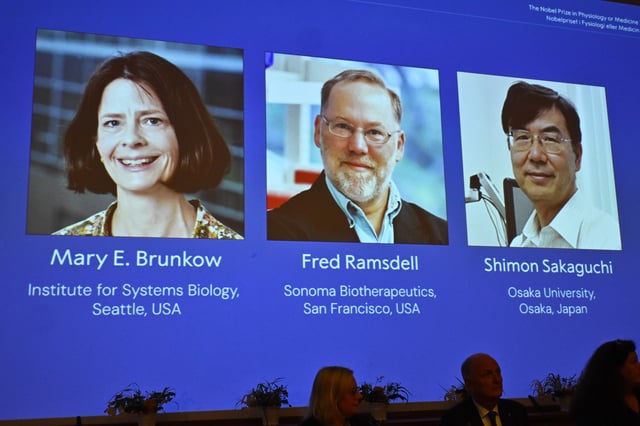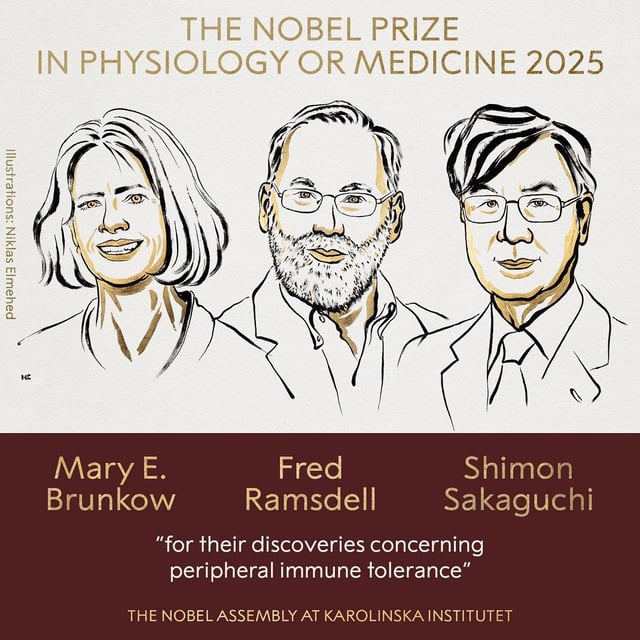Overview
- The Nobel Assembly at Karolinska Institutet awarded the prize to Mary E. Brunkow, Fred Ramsdell and Shimon Sakaguchi for discoveries concerning peripheral immune tolerance.
- Key advances spanned Sakaguchi’s 1995 identification of regulatory T cells, Brunkow and Ramsdell’s 2001 Foxp3 mutation finding linked to human IPEX disease, and Sakaguchi’s 2003 proof that Foxp3 controls T‑reg development.
- The committee said the work has been decisive for understanding why most people avoid severe autoimmune disease and for establishing peripheral tolerance beyond thymic selection.
- Their findings launched a field driving therapies now in human studies, with more than 200 clinical trials exploring T‑reg–based or related approaches and potential benefits for transplantation and cancer care.
- The laureates will share 11 million Swedish kronor, with the formal award presentation scheduled for December 10 in Stockholm.



